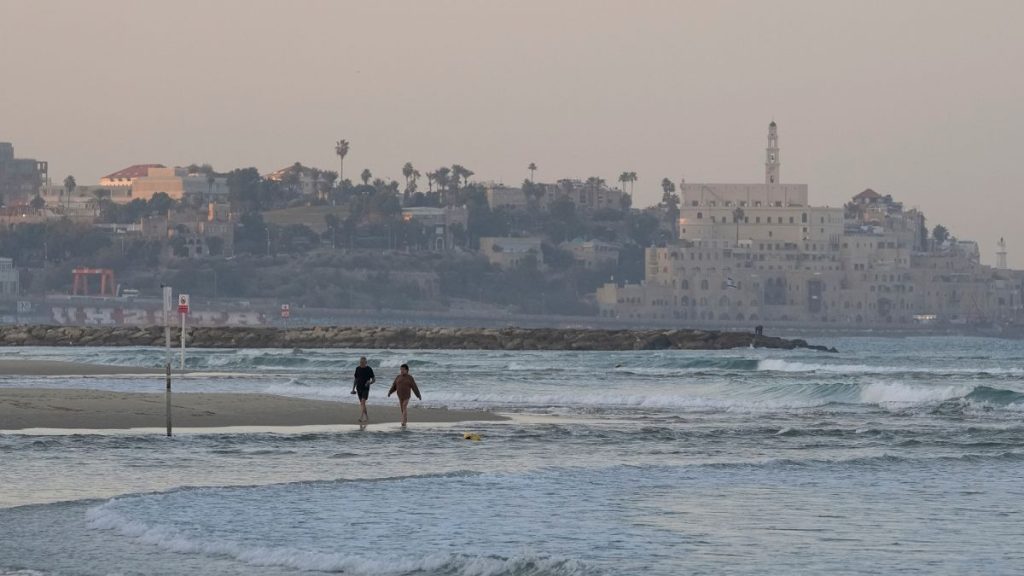The geopolitical landscape of the Middle East has undergone significant shifts, impacting travel advisories and safety concerns for tourists and visitors. After 15 months of restrictions imposed in October 2023, travel advisories for many parts of Israel have been lifted. Popular tourist destinations like Tel Aviv, Jerusalem, Eilat, the Dead Sea, Galilee, and Haifa are now more accessible, although visitors are still encouraged to check for updated advice before embarking on their journeys. This easing of restrictions signals a decrease in the frequency of rocket attacks, a key factor in the initial imposition of the travel warnings. However, the region remains volatile, with the FCDO highlighting an “increased risk of political tension” that could manifest as demonstrations and clashes, particularly around anniversaries of significant events. Furthermore, Israel’s ongoing state of emergency, declared in October 2023, underlines the persistent underlying tension. The possibility of short-notice closures of international air and land borders adds another layer of complexity for travelers, reinforcing the need for vigilance and up-to-the-minute information.
While Israel sees a relaxation of travel restrictions, neighboring countries present a different picture. Egypt, for instance, remains subject to extensive travel advisories. Large swathes of the country, including areas near the Libyan border and the North Sinai Governorate, are considered high-risk. Limited travel is advised for the northern part of the South Sinai Governorate, beyond the St. Catherine-Nuweibaa road, with exceptions for coastal areas. Similar restrictions apply to the Ismailiyah Governorate east of the Suez Canal, and the Hala’ib Triangle, among other regions. However, certain areas, including Luxor, Qina, Aswan, Abu Simbel, and the Valley of the Kings, remain accessible for essential travel, providing a glimmer of hope for those interested in exploring Egypt’s rich cultural heritage. Even in these areas, travelers should exercise extreme caution and stay informed about the evolving security situation.
Lebanon, bordering Israel to the north, faces a particularly precarious situation. Despite a recent ceasefire between Israel and Lebanese Hezbollah, the FCDO maintains a stringent advisory against all travel to Lebanon and urges British nationals to leave the country by commercial means. This reflects the unpredictable security environment and the potential for renewed conflict. Other European countries, including Ireland and France, echo this cautionary stance, advising against all travel to Lebanon. The volatile nature of the region and the potential for rapid escalation underscore the need for travelers to prioritize safety and avoid non-essential travel to Lebanon.
Syria, embroiled in protracted conflict, remains off-limits to travelers. The FCDO advises against all travel to Syria due to the ongoing conflict and unpredictable security conditions, urging British nationals to leave by any practical means. The recent fall of the Assad regime after 50 years in power, following an offensive by Islamist rebels, further destabilized the country, highlighting the extreme risks associated with travel to Syria. The fluid political and security situation makes it impossible to guarantee the safety of visitors, emphasizing the necessity of adhering to the FCDO’s advice.
Jordan, sharing borders with Israel, the West Bank, and Syria, presents a mixed picture. While the FCDO advises against all travel within 3km of the Syrian border, most tourist destinations in Jordan remain unaffected by the regional instability. Borders are open, allowing visitors to explore the country’s historical and natural attractions. However, the impact of regional tensions is evident in disruptions to some flights to Amman and Aqaba airports, highlighting the interconnectedness of the region and the potential for knock-on effects from conflicts in neighboring countries. Travelers are advised to check flight schedules and stay informed about potential disruptions before traveling to Jordan.
The evolving security landscape in the Middle East underscores the importance of informed decision-making for travelers. While certain areas, like parts of Israel, are witnessing a relaxation of restrictions, other countries, including Egypt, Lebanon, and Syria, remain subject to stringent travel advisories. The fluid nature of the situation, coupled with the potential for rapid escalation of tensions, necessitates constant vigilance and a commitment to staying updated on the latest travel advice. It is crucial for travelers to prioritize their safety and carefully consider the risks involved before embarking on any journey to the region. By consulting official sources of information, including government travel advisories, and remaining aware of the ever-changing dynamics on the ground, travelers can make informed decisions that minimize potential risks and contribute to their safety and well-being.









